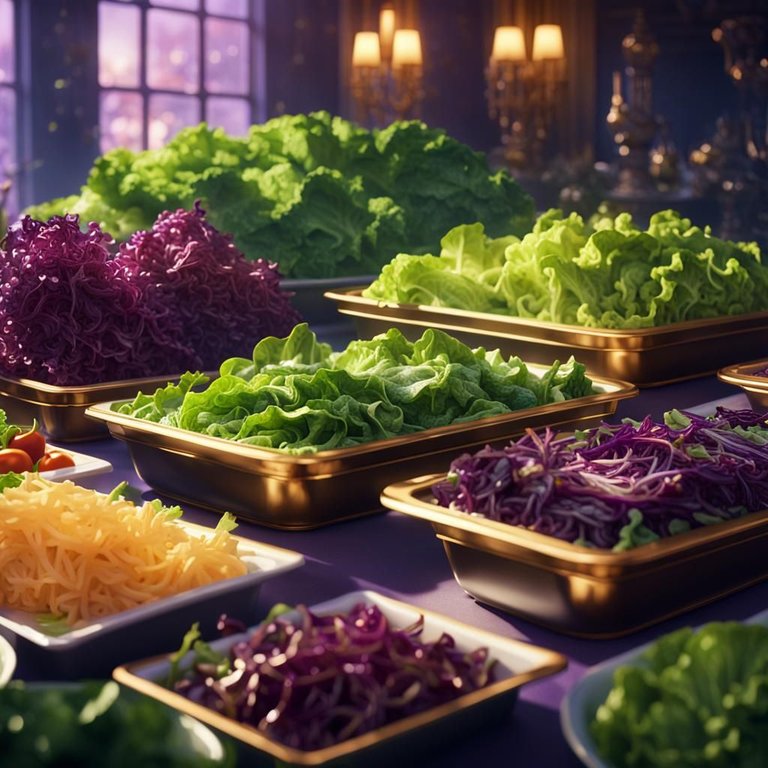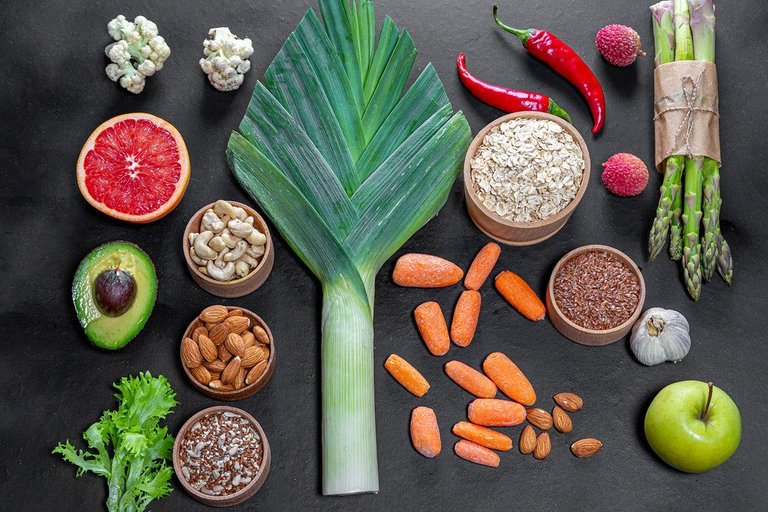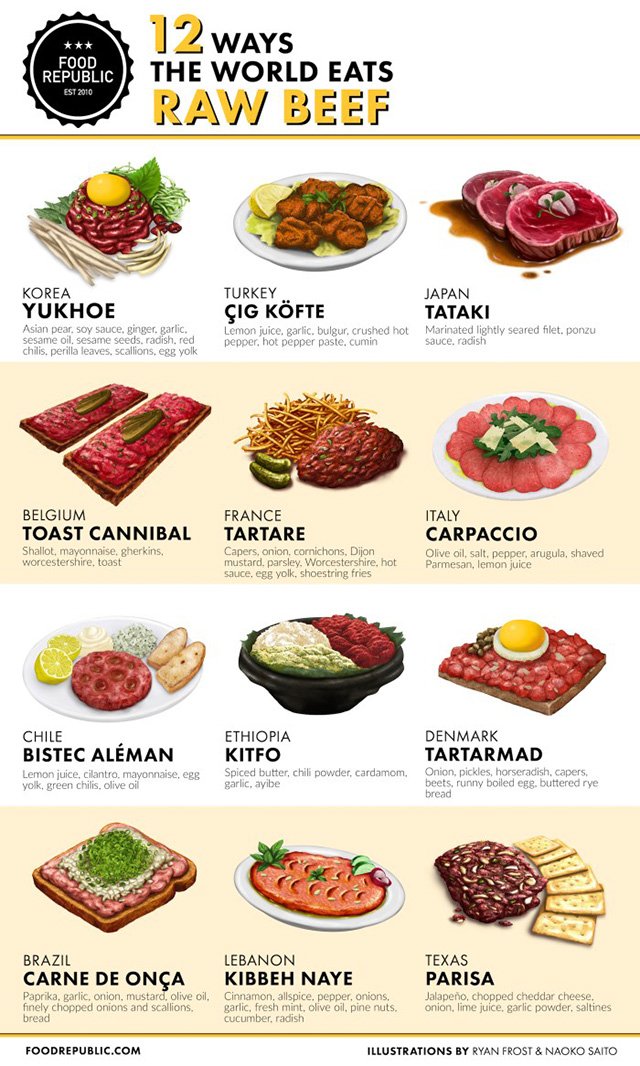
Image's Source - Fuente de la Imagen
Image generated in NightStudio - Imagen generada en NightStudio

Spanish Version Bellow
Hello. I had a nice Wednesday. August 28th passed without any major incidents. Although I couldn't sleep well the night before, and I was on intermittent mode, I was able to catch up on some sleep today, by managing to get a little work done that came to me by mail and not having much else to do. The weather was rainy, so my energy level was a little low, adding that to my drowsiness, you can imagine that I had a long nap.
As there is nothing very interesting to tell about my life offline, I prefer to enter (in this log of the day) to comment on a Commemoration in the area of #food that I found interesting for today: International Raw Food Day.
As there is nothing very interesting to tell about my life offline, I prefer to enter (in this log of the day) to comment on a Commemoration in the area of #food that I found interesting for today: International Raw Food Day.

Image's Source - Fuente de la Imagen
When I saw the name of today's celebration, in the list of things to celebrate, it caught my attention because it was a food topic, but the topic of eating raw food made me a little suspicious. You see, it occurred to me that the only raw meat I know of that is eaten is the dish of Beef Tartare.
I was surprised, when I searched a little, to find a greater variety of recipes for eating raw meat, in different parts of the world. In fact, I was quite surprised and managed to find an image that brings together some of these recipes:
I was surprised, when I searched a little, to find a greater variety of recipes for eating raw meat, in different parts of the world. In fact, I was quite surprised and managed to find an image that brings together some of these recipes:

Image's Source - Fuente de la Imagen
But then, when I searched for more information about the celebration, I found that it had nothing to do with this issue, but rather it was a date to encourage the consumption of vegetables and fruits without thermal processing. At least it is an idea that I can easily understand, the processing or cooking of many vegetables leads to the destruction or reduction of some of their key healthy components, whether antioxidants or other elements.
Before I forget, I found out that this issue of #RawFood also has another day of celebration, in other calendars, and it is in July. But, still, it caught my attention and I decided to continue with this topic for today.
Returning to the subject of food, although the issue of recipes with #raw vegetables and fruits consumed without cooking is extremely old, the industrial advance of our civilization led us to seek processed and mass-produced foods, to satisfy the population and maintain the workforce.
Unfortunately, highly processed and industrialized food became one of the causes of nutritional problems that lead us to have very diverse nutritional imbalance problems in various parts of the world. Whether due to the increase in obesity in populations (with increased risk for high blood pressure, diabetes, heart disease, and other conditions); or due to severe malnutrition in other populations, who lose micronutrient contributions that they should have been able to ingest from vegetables.
Before I forget, I found out that this issue of #RawFood also has another day of celebration, in other calendars, and it is in July. But, still, it caught my attention and I decided to continue with this topic for today.
Returning to the subject of food, although the issue of recipes with #raw vegetables and fruits consumed without cooking is extremely old, the industrial advance of our civilization led us to seek processed and mass-produced foods, to satisfy the population and maintain the workforce.
Unfortunately, highly processed and industrialized food became one of the causes of nutritional problems that lead us to have very diverse nutritional imbalance problems in various parts of the world. Whether due to the increase in obesity in populations (with increased risk for high blood pressure, diabetes, heart disease, and other conditions); or due to severe malnutrition in other populations, who lose micronutrient contributions that they should have been able to ingest from vegetables.

Image's Source - Fuente de la Imagen
So, starting in the 19th century, there were some initiatives to promote the consumption of raw food (or food whose cooking temperature did not exceed 118º C), and there are two that dispute the title of being the fathers of these celebrations. On the one hand, we have the American Presbyterian minister Sylvester Graham, who in 1830 promoted a diet of raw food consumption to combat the cholera that was ravaging his population. This idea caught my attention, because the consumption of undercooked or raw food is rather related to the increased risk of contracting cholera. So I don't know what research support this initiative of Graham's had.
The other source that I found in the records of the beginning of this movement points to the Swiss doctor, Maximilian Bircher Benner, who during the mid-19th century suffered from jaundice, and found that he could treat his condition with a diet of greater consumption of raw apples. Upon his recovery, he conducted clinical experiments and found that the idea could work for a number of diseases, and was a supportive treatment for other medical procedures. This was back to the old Greek idea of 'making thy food thy medicine'.
I don't actually know which of these men would be the one to firmly own this idea, but I admit that (because of my background and personal taste for research) I lean a bit towards the Swiss.
Well, I'm running out of space for my post, so I'll sign off, hoping that you are well and that we can meet again another time.
The other source that I found in the records of the beginning of this movement points to the Swiss doctor, Maximilian Bircher Benner, who during the mid-19th century suffered from jaundice, and found that he could treat his condition with a diet of greater consumption of raw apples. Upon his recovery, he conducted clinical experiments and found that the idea could work for a number of diseases, and was a supportive treatment for other medical procedures. This was back to the old Greek idea of 'making thy food thy medicine'.
I don't actually know which of these men would be the one to firmly own this idea, but I admit that (because of my background and personal taste for research) I lean a bit towards the Swiss.
Well, I'm running out of space for my post, so I'll sign off, hoping that you are well and that we can meet again another time.

Versión en Inglés arriba
Hola. He pasado un agradable día miércoles. Este 28 de agosto transcurrió sin mayores incidentes. Aunque no pude dormir bien en la noche anterior, y estuve en modo intermitente, pude recuperar un poco de sueño durante el día de hoy, al lograr sacar un pequeño trabajo que me llegó por correo y no tener mucho más que atender. El clima era de lluvias, así que mi estado de energía era un poco bajo, sumando eso a mí somnolencia, puedes imaginar que tuve una larga siesta.
Como no hay nada muy interesante que contar de mi vida fuera de línea, prefiero entrar (en este registro del día) a comentar sobre una Efemérides del área de la #comida que encontré interesante para el día de hoy: Día Internacional de la Comida Cruda.
Como no hay nada muy interesante que contar de mi vida fuera de línea, prefiero entrar (en este registro del día) a comentar sobre una Efemérides del área de la #comida que encontré interesante para el día de hoy: Día Internacional de la Comida Cruda.

Image's Source - Fuente de la Imagen
Cuando vi el nombre de la celebración de hoy, en el listado de cosas a celebrar, me llamó la atención por ser un tema de comida, pero me puso un poco desconfiado ese tema de comer crudo. Verás, se me vino a la mente que la única carne cruda que conozco que se come es el platillo de Carne Tártara.
Yo me sorprendí, al buscar un poco, y hallar una mayor variedad de recetas para consumir carne cruda, en distintas partes del mundo. De hecho, me sorprendí bastante y logré hallar una imagen que reúne algunas de estas recetas:
Yo me sorprendí, al buscar un poco, y hallar una mayor variedad de recetas para consumir carne cruda, en distintas partes del mundo. De hecho, me sorprendí bastante y logré hallar una imagen que reúne algunas de estas recetas:

Image's Source - Fuente de la Imagen
Pero luego, al buscar mayor información sobre la celebración, me encontré que no tenía que ver con este asunto, sino que se trataba de una fecha para incentivar el consumo de hortalizas y frutas son procesamiento térmico. Al menos es una idea que puedo entender con facilidad, el procesamiento o cocción de muchos vegetales conlleva que se destruyan o se reduzcan algunos de sus componentes claves saludables, ya sean antioxidantes u otros elementos.
Antes de que se me olvide, me enteré de que este asunto de la comida cruda tiene también otro día de celebración, en otros calendarios, y es en julio. Pero, igual, me llamaba la atención y decidí seguir con este tema para hoy.
Regresando al asunto de la comida, si bien la cuestión de recetas con vegetales crudos, y frutas consumidas sin cocción, es extremadamente antiguo, el avance industrial de nuestra civilización nos llevó a procurar alimentos procesados y producidos en masa, para satisfacer a la población y mantener la mano de obra.
Desgraciadamente, la comida muy procesada e industrializada se convirtió en una de las causas de problemas nutricionales que nos llevan a tener en varias partes del mundo problemas de desbalances nutricionales muy diversos. Ya sea por el incremento de la obesidad en poblaciones (con aumento de riesgo para hipertensión arterial, diabetes, enfermedades cardiacas, y otras afecciones); o por malnutrición grave en otras poblaciones, que pierden aportes de micronutrientes que deberían haber podido ingerir a partir de vegetales.
Antes de que se me olvide, me enteré de que este asunto de la comida cruda tiene también otro día de celebración, en otros calendarios, y es en julio. Pero, igual, me llamaba la atención y decidí seguir con este tema para hoy.
Regresando al asunto de la comida, si bien la cuestión de recetas con vegetales crudos, y frutas consumidas sin cocción, es extremadamente antiguo, el avance industrial de nuestra civilización nos llevó a procurar alimentos procesados y producidos en masa, para satisfacer a la población y mantener la mano de obra.
Desgraciadamente, la comida muy procesada e industrializada se convirtió en una de las causas de problemas nutricionales que nos llevan a tener en varias partes del mundo problemas de desbalances nutricionales muy diversos. Ya sea por el incremento de la obesidad en poblaciones (con aumento de riesgo para hipertensión arterial, diabetes, enfermedades cardiacas, y otras afecciones); o por malnutrición grave en otras poblaciones, que pierden aportes de micronutrientes que deberían haber podido ingerir a partir de vegetales.

Image's Source - Fuente de la Imagen
Entonces, a partir del siglo XIX, se presentaron algunas iniciativas para impulsar el consumo de comida cruda (o comida cuya cocción térmica no superara los 118º C), y hay dos que se disputan un poco la titularidad de ser los padres de estas celebraciones. Por un lado, tenemos al ministro presbiteriano estadounidense Sylvester Graham, quien en 1830 propulsaba una dieta de consumo de comida cruda para combatir el cólera que azotaba a su población. Esta idea me llamó la atención, porque el consumo de comida poco cocida o cruda, más bien se relaciona con el incremento de riesgo para contraer cólera. Así que no sé qué respaldo de investigación tendría esta iniciativa de Graham.
La otra fuente que hallé en los registros del inicio de este movimiento señala al médico suizo, Maximilian Bircher Benner, que durante mediados del siglo XIX sufrió de ictericia, y halló que podía tratar su situación con una dieta de mayor consumo de manzanas crudas. Al recuperarse, realizó experimentos clínicos y halló que la idea podía funcionar en varias enfermedades, y era un tratamiento de apoyo para otros procedimientos médicos. Esto retomaba la vieja idea griega de hacer que tu comida sea tu medicina.
No sé en realidad cuál de estos hombres sería el que tendría la autoría de esta idea en forma firme, pero admito que (por mi formación y gusto personal por la investigación) me decanto un poco por el suizo.
Bien, se me acaba el espacio planificado para mi registro, así que me despido, deseándote que tú estés bien y que nos podamos leer de nuevo en otra oportunidad.
La otra fuente que hallé en los registros del inicio de este movimiento señala al médico suizo, Maximilian Bircher Benner, que durante mediados del siglo XIX sufrió de ictericia, y halló que podía tratar su situación con una dieta de mayor consumo de manzanas crudas. Al recuperarse, realizó experimentos clínicos y halló que la idea podía funcionar en varias enfermedades, y era un tratamiento de apoyo para otros procedimientos médicos. Esto retomaba la vieja idea griega de hacer que tu comida sea tu medicina.
No sé en realidad cuál de estos hombres sería el que tendría la autoría de esta idea en forma firme, pero admito que (por mi formación y gusto personal por la investigación) me decanto un poco por el suizo.
Bien, se me acaba el espacio planificado para mi registro, así que me despido, deseándote que tú estés bien y que nos podamos leer de nuevo en otra oportunidad.

This post, on the #blockchain #Hive, is in the We Are Alive Tribe community, it's part of the #IAmAliveChallenge
This challenge is an initiative of @flaxz
The 4 points to join the #IAmAliveChallenge, includes using the hashtag #alive to post to We Are Alive Tribe and earn ALIVE tokens.
This challenge is an initiative of @flaxz
The 4 points to join the #IAmAliveChallenge, includes using the hashtag #alive to post to We Are Alive Tribe and earn ALIVE tokens.
Esta publicación, en la #blockchain #Hive, está en la comunidad We Are Alive Tribe, es parte del #IAmAliveChallenge
Este desafío es iniciativa de @flaxz
Los 4 puntos para unirte al #IAmAliveChallenge, incluyen el uso de la etiqueta #alive para publicar en We Are Alive Tribe y ganar tokens ALIVE.
Este desafío es iniciativa de @flaxz
Los 4 puntos para unirte al #IAmAliveChallenge, incluyen el uso de la etiqueta #alive para publicar en We Are Alive Tribe y ganar tokens ALIVE.



